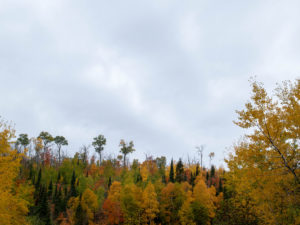Consider Energy Self-Reliance
While the details of energy self-reliance may become a bit technical, being energy self-sufficient simply means being in control of your power supply. Energy self-reliance can mean taking control of your home energy needs and working to lower your electricity bills, and ultimately generating your own renewable power. Energy self-reliance will not only cut costs, but also provide consistent energy during a blackout. Put simply, people who are energy self-sufficient are able to produce energy for their consumption needs.
One action you can take is to advocate for the creation of a renewable energy power grid that works for our economy and environment. The economics are trending away from fossil fuels and Duluth needs to adopt a renewable grid for environmental and economic reasons. Almost 75% of the US’ coal fired power plants cost more to operate than if wind and solar were built according to a 2019 report from Energy Innovations. Let us innovate and build a renewable power grid to power electric vehicles and energy needs across Duluth.
Where to start? Here are three steps to get from being 100% dependent on energy companies to being 100% dependent on your own source of energy.
- Know how much energy you use (and find ways to reduce it). A home energy audit can help you find simple and affordable ways to reduce your energy needs. You may find that simply winterizing windows and doors can cut heating costs, or that putting computers into a power-save mode can cut your consumption without any behavior change. Switching all your lights to LED’s from incandescent bulbs is one of the easiest ways to reduce energy costs. A home energy audit helps you find out where you use energy unnecessarily or inefficiently, and then proposes cost-effective ways to reduce your energy use. Find out more about home energy audits here.
- Explore your options for energy. After you have found ways to reduce unnecessary energy costs (and their associated emissions), investigate alternative options for self-sufficient energy. Installing solar panels or solar plus a battery, means you can generate (and store) energy from the sun. If you rent your building or apartment, consider encouraging your landlord to explore solar options as a cost reduction strategy. If solar panels are not feasible, consider being part of a solar panel community or garden (see idea #3).
- Work as a community to become self-reliant through solar gardens or community solar. While having solar panels on your home gives you rights to that energy, an alternative is to form a solar community. Ecolibrium3 has recently created a community solar garden in Lincoln Park that benefits veterans and low-income community members, and the model can be used throughout Duluth. Think of a solar garden or community as a co-op: everyone pays in to help set-up and maintain the panels, and everyone enjoys the benefits of renewable energy. There are resources to help people who are seeking alternatives to conventional energy sources. Read NREL’s Solar Community outline here.
- Consider combining energy storage with solar power or other renewables at your own home to create your own microgrid. A microgrid is a self-contained power grid that is autonomous of a large central grid, and thus making your property into its own microgrid, means that you could be completely independent of the larger, centralized grid. Microgrids are typically more energy efficient than the conventional, centralized grid because energy is not lost traveling over long distances, is less vulnerable to temporary power shutdowns, and allows you to have complete control over where your electricity comes from.
Do you want to learn more about energy self-reliance? The Minnesota Department of Commerce offers solar guidance here. While many of the US Federal Solar Initiatives were delayed or canceled in 2017, a list of past solar resources can be found here.
Whether you decide to simply cut energy use, or begin to produce your own energy sources, you are doing your part to commit to long term clean energy solutions.
Did you take this action? Report it!
Help us show our collective community impact by reporting that you took this action.
